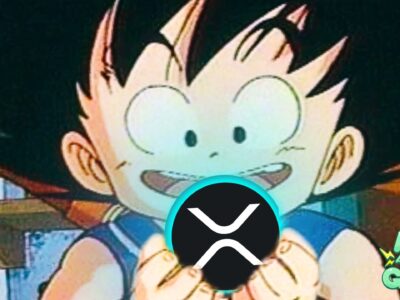
[ad_1]

Animation director Mamoru Hosoda, who almost got the job veteran Miyazaki did in directing one of Studio Ghibli’s films, said in an interview with AFP/France 24 that Miyazaki’s got a serious problem with how he depicts women and/or girls. Steven Spielberg was also cited for criticism:
Mamoru Hosoda has bones to pick with both Steven Spielberg and Hayao Miyazaki, the other great Japanese animator to whom he is often compared.
Hosoda — whose brilliantly humane “Mirai” got an Oscar nod three years ago — has had enough of the way Hollywood treats the digital world and Miyazaki depicts women.
The dystopian tropes about the net that run through so many movies, including Spielberg’s “Ready Player One”, are not doing anyone any favours, particularly women, Hosoda told AFP at the Cannes film festival, where his latest feature “Belle” is premiering.
Father of a young girl himself, the Japanese master wants to empower her generation to take control of their digital destinies rather than cower in fear.
[…] Without naming Miyazaki, Hosoda was unsparing about the Studio Ghibli founder.
“I will not name him, but there is a great master of animation who always takes a young woman as his heroine. And to be frank I think he does it because he does not have confidence in himself as a man.
“This veneration of young women really disturbs me and I do not want to be part of it,” he insisted.
He wants to free his heroines from being paragons of virtue and innocence and “this oppression of having to be like everyone else.”
I vaguely recall reading an interview with Miyazaki years ago where it sounded like he couldn’t think of anything to offer for boys as role models, and all he could think of was supposedly to provide some for girls. Though his resume does have 4 or 5 items with male leads (Future Boy Conan, Lupin III: The Castle of Cagliostro, Castle in the Sky, Porco Rosso and Princess Mononoke), the animation director who describes himself as a feminist certainly has overshadowed those considerably with stories that supposedly provide girls with role models, yet failure to provide examples boys could learn from that women could be impressed by ruins everything. He even mostly avoids sexualizing the lady characters in a lot of the tales he’s helmed, and the big problem there is that it all reeks of virtue-signaling. Which could explain why he hasn’t worked on TV shows since 1990, as the arthouse cinema scene must’ve proven too much of a temptation for him. Yeah, I get it. Appeal to all the western leftists in some way or other; that must’ve just so appealing to Miyazaki.

Another problem with Miyazaki, as he made clear several years ago after the horrifying jihadist bloodbath in Paris and the murders of the Charlie Hebdo staff in 2015, is that, for somebody who says he’s anti-war, and has made cartoons with that kind of vision, he hasn’t made clear whether he’s anti-barbarism, let alone anti-totalitarian (he was against the Iraq war 2 decades ago as well). And, he supposedly takes a neutral position, but again, his stance on Charlie Hebdo conflicts with even that much.
Hosoda had a good idea to take issue with Miyazaki, and I can’t say the former’s ever made statements as divisive as the latter’s. Polygon actually reported 2 years ago Hosoda felt getting fired from Studio Ghibli was the best thing that could happen to him (Hosoda was originally hired to direct Howl’s Moving Castle), and I’d say he’s right. According to him:
“I was really excited, but with Ghibli, there’s a certain … tone, and rules they had to follow,” he explained.
Some ex-employees have alluded to what those may be in interviews about working at the studio. In 2016, former production coordinator Hirokatsu Kihara described Ghibli as a place with high turnover, where co-founder Hayao Miyazaki (the award-winning director of Spirited Away, Kiki’s Delivery Service and more) dominated all of his fellow creatives.
Hosoda wasn’t as harsh as Kihara, who said one person in charge “speaks like a Yakuza and rules [Ghibli] like a politician.” But Studio Ghibli’s core focus on Miyazaki was incompatible with his vision.
“I was told to make [the movie] to similar to how Miyazaki would have made it, but I wanted to make my own film the way I wanted to make it,” he said. “The difference between the film I wanted to do and ho they wanted to do it was too great, so I had to get off the project.”
And again, Hosoda was decidedly right to take off. The problem with men like Miyazaki is that it’s all about Miyazaki. When somebody rules the studio with that heavy a hand, it’s not healthy. I will say though, it sure is surprising somebody like Miyazaki actually cares that much about his productions he’d demand any foreign licensees avoid mass editing and remain as faithful as possible to the original script. I do get the feeling, however, that today, it’s less likely Disney would license Miyazaki’s movies if they thought the material wasn’t PC enough for their current tastes. This Cartoon Brew report on a biography of the studio tells how the disgraced Harvey Weinstein was stunningly foul-mouthed when he couldn’t get his way about his desire to edit Princess Mononoke to his whims, and now that he’s been imprisoned for his sex crimes, it says quite a bit about Weinstein’s mindset. However, the article also says, eyebrow-raisingly enough:
Ghibli violated labor laws on Miyazaki’s productions.
Staff would put in “an illegal number of hours” during crunch time. Alpert outlines the studio’s working conditions during his time there: a six-day week, unpaid overtime, a reluctance to take vacations. “And duties such as cleaning the office and serving tea or coffee were mandatory for all female employees (only).”

My my, is that a fact! And what does that tell about Miyazaki, if he’s got any accountability there? Plenty, of course. Some “feminist” he must be then, eh? It also mentions that, although Mononoke wasn’t edited, at least one other production released through Disney was at the time (it’s unclear if they ever mended it), so who knows if Miyazaki really is that firm on his demands for faithfulness?
I’m sure there’s better company executives who can, for better or worse, demand serious work and expectations from employees, but Miyazaki doesn’t sound like one of them. And depending on one’s POV, to watch his work would surely take a lot of salt, seeing what kind of political visions he’s got, even if you can divide between art and artist. Again, I congratulate Hosoda for how he feels about Miyazaki, and also Hollywood’s most pretentious filmmakers whose visions are much too PC to really have a good impact.
Originally published here.
[ad_2]





